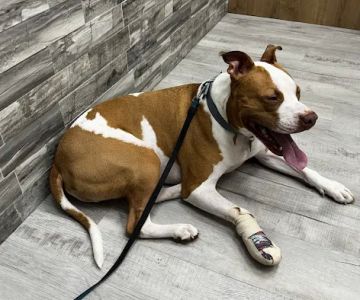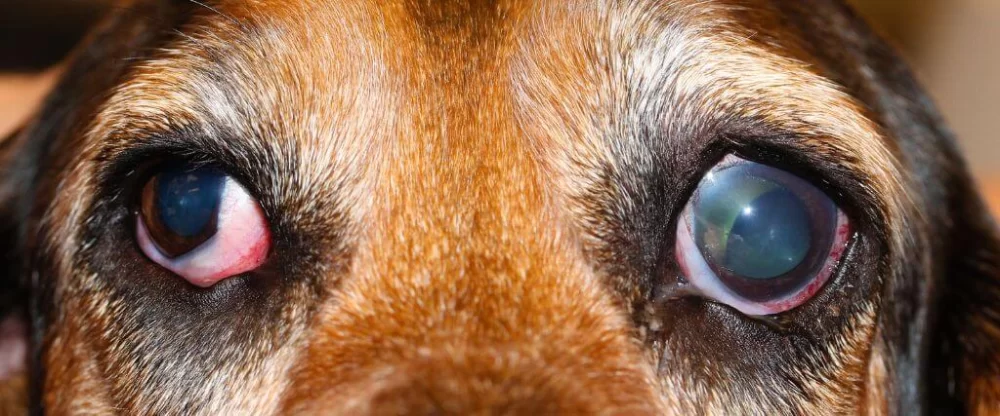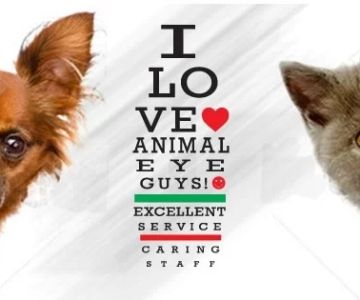- Understanding Common Pet Eye Issues
- How to Care for Your Pet's Eyes
- When to Seek Professional Help
- Preventative Measures for Pet Eye Health
- Exploring Pet Eye Treatment Solutions
Understanding Common Pet Eye Issues
Pets, like humans, are susceptible to a range of eye problems that can affect their vision and comfort. Understanding common pet eye issues is the first step in providing them with proper care. Some of the most frequent eye problems in pets include conjunctivitis, cataracts, dry eye (keratoconjunctivitis sicca), and glaucoma.
Conjunctivitis, or pink eye, occurs when the conjunctiva (the tissue lining the eyelids) becomes inflamed. This can cause redness, discharge, and squinting. Cataracts, on the other hand, are cloudy areas that form in the lens of the eye, leading to impaired vision, and they are common in aging pets. Dry eye results from a lack of tear production, causing irritation and discomfort, while glaucoma is a condition characterized by increased pressure within the eye, potentially leading to blindness if untreated.
Being able to identify these issues early on will help in seeking the right treatment. Always keep an eye out for signs such as excessive tearing, redness, cloudiness, squinting, or pawing at the eyes.
How to Care for Your Pet's Eyes
Proper care is essential for maintaining your pet’s eye health. Regularly cleaning your pet’s eyes is one of the most straightforward ways to help keep them free of debris and irritants. Use a pet-safe eye wipe or a soft cloth soaked in warm water to gently wipe away any discharge or buildup around their eyes.
For pets prone to eye infections, it’s important to avoid letting dirt or allergens accumulate near their eyes. Make sure their living environment is clean, and consider using an air purifier if allergies are an issue. Keep their eyes lubricated by using veterinary-recommended eye drops if they have dry eye. These drops help in reducing discomfort and ensuring that their eyes remain hydrated.
If your pet frequently faces eye irritation due to their breed (e.g., brachycephalic breeds like Bulldogs), consider taking extra precautions, such as investing in protective eyewear or consulting with your vet about specialized care for their unique needs.

253 Hurffville - Cross Keys Rd #5b, Sewell, NJ 08080, USA
See DetailsWhen to Seek Professional Help
While at-home eye care is important, there are times when you should seek professional help. If your pet exhibits persistent signs of eye discomfort, such as redness, swelling, cloudiness, or difficulty seeing, it's important to take them to a vet promptly. Delaying treatment can result in more serious conditions, including permanent vision loss.
Additionally, if your pet suffers from recurrent eye infections or any of the above-mentioned conditions, a veterinary ophthalmologist may be necessary to provide a more specialized diagnosis and treatment plan. Your vet can guide you in making the best decision for your pet’s eye care needs.
Preventative Measures for Pet Eye Health
Prevention is always better than cure when it comes to your pet’s eye health. To prevent eye problems, ensure that your pet’s diet is rich in essential nutrients, such as omega-3 fatty acids, which can help maintain healthy eyes. Regular check-ups with your vet can catch early signs of any underlying issues that may not be immediately apparent.
Another preventative measure is maintaining your pet’s overall health. Keep them free from parasites and infections, as conditions like conjunctivitis are often linked to systemic health issues. Regular grooming, especially for breeds with long or dense fur, helps prevent hair and debris from getting into their eyes.
Additionally, if your pet is an outdoor animal, ensure they have adequate protection from environmental factors like wind, dust, and allergens. Using specialized eye ointments or drops as part of a routine can also help shield your pet’s eyes from dryness and irritation.
Exploring Pet Eye Treatment Solutions
If your pet is diagnosed with an eye condition, there are a variety of treatments available, depending on the severity and type of issue. For conditions like conjunctivitis or dry eye, your vet may recommend topical medications, such as antibiotics or anti-inflammatory eye drops. In cases of cataracts, surgery may be required to remove the cloudy lens and restore vision.
For pets suffering from glaucoma, medications that reduce eye pressure may be prescribed, and in severe cases, surgical interventions might be necessary. If your pet has been diagnosed with a serious condition such as retinal disease, treatment may include advanced therapies to slow disease progression and preserve vision.
At Hidden Brook Veterinary, we provide a wide range of products and treatments to support the eye health of your pets. Whether you’re looking for eye drops, specialized eyewear, or professional advice, we offer tailored solutions to ensure the best care for your furry companions.











